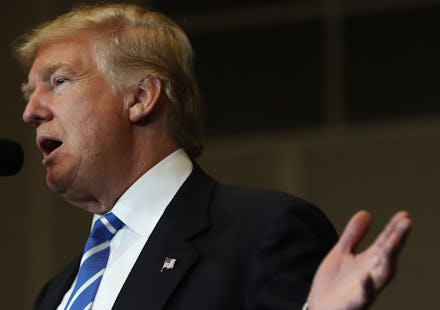Donald Trump reportedly violated the Cuban embargo. Here's why that could sink him.

Donald Trump's hotel company violated the longstanding U.S. government embargo against Cuba by doing business in the country in the 1990s, and then sought to cover it up, Newsweek reported Thursday — a revelation that could badly damage Trump's electoral prospects in Florida, where many Cuban-Americans live.
The report found that Trump's hotel company spent at least $68,000 in Cuba — without gaining the necessary government approval — in an effort to explore an expansion into the isolated island nation in 1998.
At the time, a group of senators and former high-ranking government officials were urging then-President Bill Clinton to end the embargo, Newsweek noted.
Experts told Newsweek that the trip never would have been approved by the U.S. government, which only signed off humanitarian efforts in the country — not business ventures.
So, in order to get around that, Trump's company shuttled the money through a consulting firm called Seven Arrows, documents provided to Newsweek revealed.
Even more damning in the report is that the expenditure came just before Trump launched his first run for president in 1999 as a member of the Reform Party. Trump launched that bid in Miami before a group of Cuban-Americans, telling them he would never spend any of his personal or company cash in Cuba unless Fidel Castro was gone from power.
Castro is detested by many Cuban-Americans, many of whom fled Castro's regime to come to the United States.
And while the Cuban-American population historically leans Republican, the news that Trump did business in Castro's Cuba could threaten his support among that key voting bloc — which is heavily concentrated in Florida.
According to the U.S. Census, more than 1.2 million Cubans live in Florida — which amounts to more than 6% of the state's population.
Local news outlets in Miami — where the Cuban population is centered — are already picking up on the report.
Current polls show Florida is a tight race between Trump and Hillary Clinton, with Clinton holding a 0.6% lead in the RealClearPolitics four-way race average.
Without the Sunshine State's 29 electoral votes, Trump's prospects of winning the presidency are virtually nil.